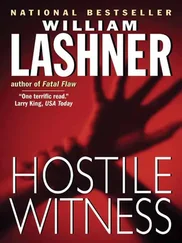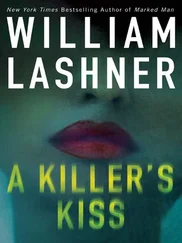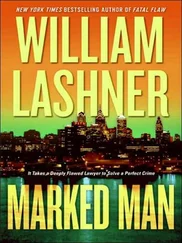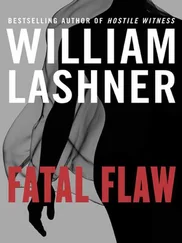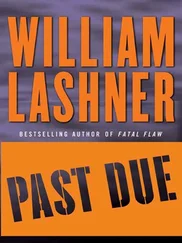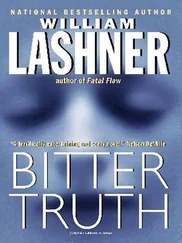“Make me testify and you won’t get another cent.”
“I’ll find a way to get paid,” I said. “Maybe your husband will cover the bill in gratitude for proving your infidelity. And if he won’t – screw it. I’ll finish the case pro bono just to make you squirm.”
“You’re an insignificant worm.”
“Yes I am,” I said cheerfully, “on a useless piece of rock hurtling through a universe devoid of rhyme or reason. And yet you’re still going to testify.”
She stood before me for another moment, swaying as if she had taken a shot, and then stormed off toward the limo.
I kneeled down, picked up the subpoena. “You forgot something, Velma.”
She didn’t slow her pace. “Screw yourself.”
“Show up, or I’ll put you in jail.”
She stopped, turned around. “You have no idea what you are getting into.”
“You’re exactly right. I move through life in a blissful state of ignorance. It’s the only way people like you and me can live with ourselves. See you in court.”
She turned away again, headed in a trot toward the limo.
“Oh, and Velma, when you come,” I called out after her, “the scarf thing would work wonderfully on the stand.”
We watched as she dived into the open limo door, watched as the driver pulled immediately away, watched the dust kick up as the limo made its exit from the Peaceful Valley Memorial Park. I had enjoyed the whole scene immensely, and yet something troubled me.
“Do you feel,” I said, “like we’ve just been in the middle of something staged for the adoring crowd?”
“She seemed angry enough,” said Beth.
“That’s exactly it. Angry enough. She comes to the cemetery to drop a flower at her best friend’s grave, we show up asking about Clem, a man who might have killed said friend, and suddenly the scene erupts. But it’s exactly everything you would expect from such a scene. First she acts all imperious, then she tries to seduce me, then she challenges my manhood, then she cuts off our fees, and then she’s rushing off as if she’s late for a manicure.”
“As usual you’re looking too hard,” said Beth. “She doesn’t want to testify. We’re a threat to everything she’s worked for.”
“Of course we are,” I said. “But still, even with all she said, it seemed the only time there was real venom in her voice was when she went after you.”
I looked at Beth, her gaze nervously danced away. “She was out of line,” said Beth.
“Was she?”
“Well, maybe not on the dickless wonder thing, but on everything else.”
I laughed and then stopped laughing. Beth and I were staring one at the other. There was something in her face just then, was it fear, maybe? Fear of what? Of what she was feeling, of what she was risking, of everything going all to hell? After a moment she turned away, looked down at Leesa Dubé’s grave.
“We need to find him,” she said, a note of desperation in her voice. “There’s no telling what Velma will say in court, and we can’t trust Sunshine. We need to find Clem.”
“We’re doing what we can.”
“I know, but it’s not enough.”
“You’re in deep, aren’t you?”
“It’s not like you think.”
“Then what is it like?”
She didn’t answer.
“I don’t trust him,” I said.
“You don’t have to.”
“You want the lecture?”
“No.”
“Okay,” I said. “But it can’t come to anything.”
“I don’t want anything except to help him every way I can.”
“We’re lawyers, Beth. We have rules.”
“Is this the lecture?”
“Maybe. I don’t know. But, Beth, something isn’t right here, and that son of a bitch, I’m telling you, is in the middle of it.”
I was in the tar pit, reviewing once again the transcript of Seamus Dent’s testimony at the first François Dubé trial, when Whitney Robinson III strolled into the room. I startled when I saw him. It was as if I had conjured him with my thoughts, because the whole time I was examining the transcript, I had actually been thinking about Whit, and this is what I had been thinking: Why the hell hadn’t he ripped poor Seamus Dent a second asshole on the stand? Whitney had been gentle, almost kind to the kid. But as I examined the testimony, I could see the flaws in Seamus’s statement, the avenues wide open for attack. I didn’t yet know if Seamus had been telling the truth or not, but I sure could have placed doubt in the jury’s mind, and so could the Whitney Robinson I had seen in court over the years. So why, in this trial, had Whit given Seamus Dent a pass? And it was not the first fairly grievous error I had caught in Whit’s performance at the trial.
“Whit,” I said, standing quickly and dropping the transcript as if I had been caught at something. “How nice of you to visit.”
“I was in the neighborhood, old boy,” he said. “Thought I’d see how you’re getting along. Your secretary remembered me and sent me on back. I hope you don’t mind.”
“No, not at all. It’s great to see you.”
“You look busy.” He glanced around at the piles of paper scattered across the table and the floor, stacked on the chairs. “Think you have enough material to work with?”
“Just about.”
“I remember trying murder cases with a file thinner than a comic book. I guess the times have passed me by.”
“Never,” I said.
I cleared off a chair, bade him to sit. His whole body shook with effort as he lowered himself onto the seat. He took out a handkerchief and wiped his forehead. He was wearing his normal costume, argyle socks, tan pants, blue blazer, red bow tie, but his expression showed more age and worry than I remembered in him. It made me think of the strange comment that ended our meeting at his house at the start of the case: You can’t imagine the price. What price? I wondered. And how had he paid it?
“I thought I’d come by to see if I could help your preparations,” he said. “To see if you had any questions about the first trial that I could answer for you. Anything I can do to help, I’d be delighted.”
I glanced down at the transcript and then up at the old man and his aged, worried eyes. It seemed just then that the way he sat, the way he hunched over with the weariness of age, answered all my questions about the prior trial. “No, Whit. Everything seems pretty clear.”
“I’m more than willing to talk about the case, Victor. To see if I can add anything to your efforts.”
“I appreciate that, but we seem to have it under control.”
“Good. Grand. How are your teeth getting along? Last time I saw you, at the hearing, your whole face was swollen.”
I rubbed my tongue over the temporary crowns and the healing gap where my cracked tooth had been. “Actually, my teeth are doing quite well. I took your advice about Dr. Pfeffer.”
“Yes, I know. He called to thank me for the referral.”
“He hasn’t been the most gentle of doctors, and there has been some pain involved, great spasms of pain, actually, but it almost seems like he knows what he’s doing.”
“Oh, he does, I assure you.”
“What do you know about him?”
“Dr. Pfeffer? Interesting character. He talks a bit much while he’s in your mouth, but he’s quite good. I met him quite by chance at the time of François’s first trial. My teeth were in sorry shape when he took control, but they are much improved, I am glad to say. Nothing like a good ear of corn on a summer’s eve, yes, Victor? And I’ve found he can be rather helpful in many other ways, too.”
“How so?”
“Well, he seems to know everybody and enjoys making connections. He likes to feel at the center of things, I suppose, but the connections can be quite valuable all the same. He helped my wife and me with our daughter’s care. In fact, the nurse we have now, who has been a lifesaver, was referred to us by Dr. Pfeffer.”
Читать дальше



